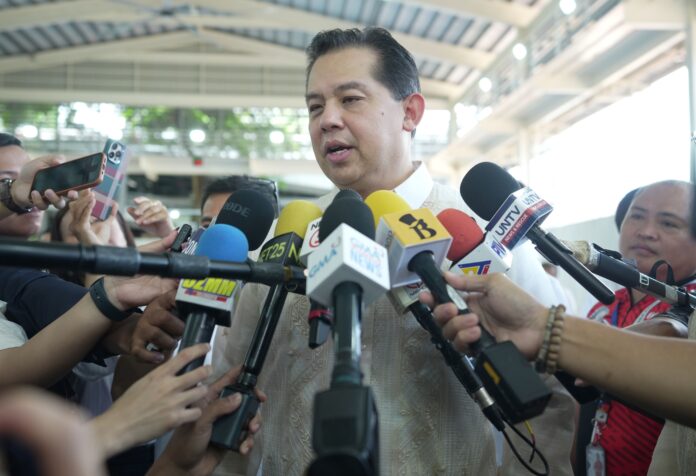Chiz: We can’t bind incoming senator-judges
the incoming 20th Congress will have the final say on whether the impeachment trial of Vice President Sara Duterte will continue, Senate President Francis Escudero said Monday, noting there is not enough time to start the trial proper before the present Congress adjourns on June 13.
In a press conference, Escudero said there are only six remaining plenary sessions before the 19th Congress adjourns.
“The 19th Congress can make a vote during the plenary (as to how the impeachment trial should proceed), but we cannot bind the 20th Congress. We in the 19th Congress can say the impeachment trial can cross to the 20th Congress, but they might decide otherwise. That it cannot cross and they would dismiss it. So, it depends (on the 20th Congress,” he said.
“You have to understand, in Congress, the plenary is supreme. It’s not the decision or the voice of one member, even if he or she is the Senate President or an officer of the Senate or the House. The decision of the plenary will always prevail,” he added.
The 20th Congress will open on July 28, on the day of the fourth State of the Nation Address (SONA) of President Ferdinand Marcos Jr.
Based on the proposed schedule, the oath-taking of newly elected senator-judges before the Senate, sitting as an impeachment court, will take place on July 29 at 9 a.m. The trial proper will then begin on July 30.
Escudero said the trial should proceed on July 30 “in the ordinary course of events” unless the 20th Congress decides otherwise.
Escudero recently postponed the reading of the Articles of Impeachment against the Vice President from June 2 to June 11, citing pending legislative matters that take higher priority over the political process.
Senate Majority Leader Francis Tolentino on Monday called for the dismissal of the impeachment case, citing constitutional deadlines that he said bar further proceedings.
“It is a legal imperative that connotes immediacy, trial after months of inaction undermines not only this directive but also the due process rights of the respondent and the integrity of the Senate as an Impeachment Court,” he said.
“The timeline is tight and difficult…Impeachment is a proceeding tied to the mandate and lifespan of the Congress that initiated it. It does not continue automatically into the next Congress,” Tolentino added.
Senator Risa Hontiveros, however, said the Constitution requires the Senate to proceed without delay.
She cited Chavez v. Judicial and Bar Council and Pimentel v. Joint Committee of Congress to argue that impeachment is a non-legislative function, therefore unaffected by the change in Congress.
“This is a very important mandate of the Constitution, clear and without ambiguity, that once we receive the Articles of Impeachment, ‘trial by the Senate shall forthwith proceed,’” she said.
“The people will judge us if we fail to carry out this duty to the nation,” Hontiveros added.
Senator Aquilino Pimentel III also disputed Tolentino’s position.
“On the contrary, the Senate rules on impeachment support the position that the impeachment trial shall continue until final judgment, even if it is necessary to continue into the next Congress,” he said.
“It is my humble opinion that the trial of the current impeachment case now pending before this Senate of the 19th Congress can ‘cross over’ or continue from the 19th Congress to the 20th Congress. The impeachment docket of the Senate continues and remains the same,” Pimentel said.








